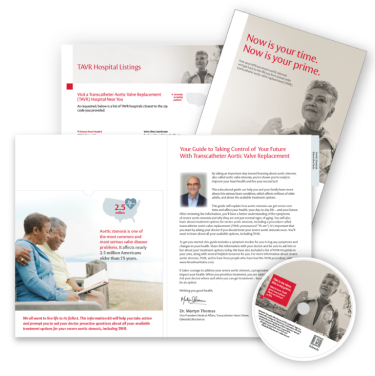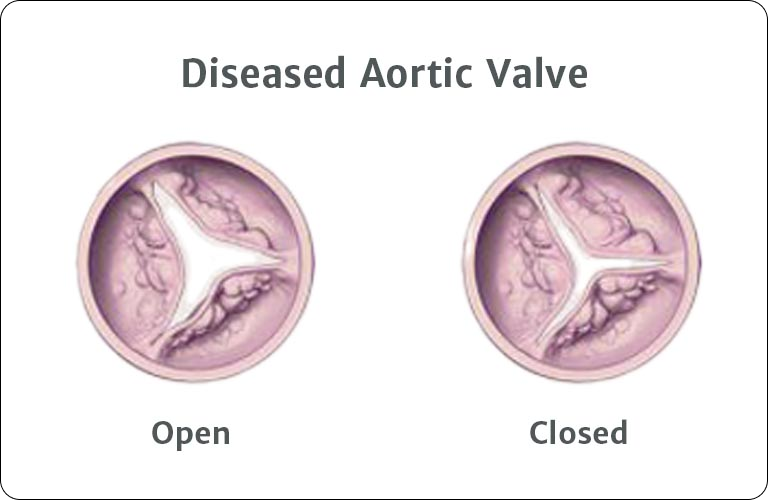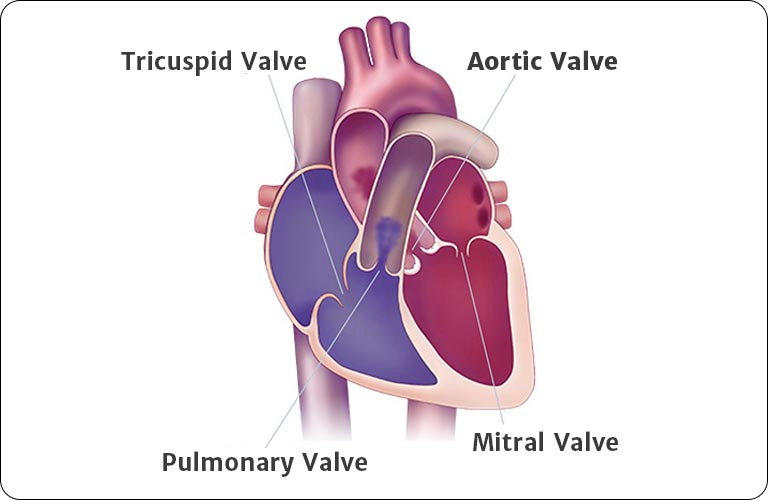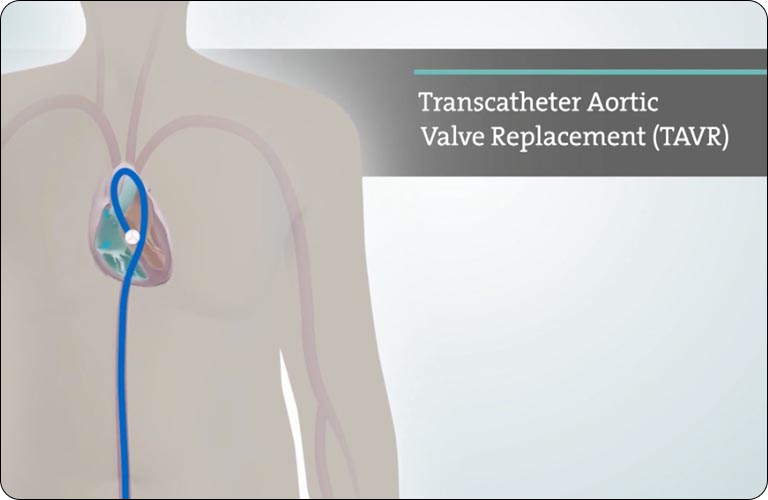Without treatment, up to 50% of patients with severe aortic stenosis will die within an average of 2 years after symptoms appear.1
Learn moreRisks of Severe Aortic Stenosis
You may think it is ok to delay talking to your doctor about new or worsening symptoms, but it is important to share this information once you first notice changes. Aortic stenosis can be fatal so it’s important not to dismiss your symptoms and delay getting the treatment that could help you get back to your normal life.1

Why is severe aortic stenosis dangerous?2
At this advanced stage, the aortic valve has a severe buildup of calcium, and it has a difficult time opening and closing. When this happens, your risk for heart failure significantly increases.
Uncomfortable symptoms such as breathlessness and chest pain may become more noticeable. These aren't normal signs of ageing and could be a sign of aortic stenosis.
When is the right time for severe aortic stenosis treatment?
It is understandable to want to wait for just the right time, but it is important to note that it doesn't exist. If you have severe aortic stenosis and are experiencing symptoms, the time is now. Once your aortic stenosis becomes severe, it can be life-threatening if your valve is not replaced.1 Ask your doctor about the next steps to get treatment as soon as possible, and what to expect in the meantime.
The European Society of Cardiology recommend that recommend that patients receive treatment as soon as they are diagnosed with severe aortic stenosis and start to experience symptoms.4

What are the symptoms of severe aortic stenosis?2
Mild to moderate aortic stenosis often causes no outward symptoms. However, as the disease progresses, you may begin to feel symptoms. That’s why it is important that you talk to your doctor about any new or worsening symptoms, including changes in your day-to-day activities or stopping to catch your breath. These symptoms may not be due to aging, but rather severe aortic stenosis.
Symptoms may include:
- Breathlessness or shortness of breath
- Chest pain
- Fatigue (low energy)
- Lightheadedness, feeling dizzy, and/or fainting
- Difficulty in walking short distances
- Swollen ankles and feet
- Rapid, fluttering heartbeat
These symptoms may mean your body is not getting enough oxygen. Over time, you may feel tired and weak. These may be signs that your severe aortic stenosis has reached a life-threatening point.

For your next appointment
Use this Informed Discussion Guide to help you talk with your doctor about aortic stenosis, possible symptoms, and treatment options once your aortic stenosis becomes severe.
Talk with your doctorDon’t confuse severe aortic stenosis symptoms with signs of aging
If you're having to stop to catch your breath, feeling fatigue of dizziness, it could be severe aortic stenosis, not age.5 Many patients mistakenly think that severe aortic stenosis symptoms are normal signs of aging. Studies have shown that while many aortic stenosis patients initially report no symptoms, after closer examination, 32% do have symptoms.6
If you've been diagnosed with aortic stenosis and experience any of the symptoms of severe aortic stenosis, talk to your doctor about whether it is time for treatment. Don't wait.

Your future belongs to you, not to your severe aortic stenosis
If you've been diagnosed with severe aortic stenosis and you have symptoms, then the time for treatment is now. Take control of your severe aortic stenosis and ask your doctor for a TAVI evaluation.

Want more information delivered directly to you?
Get a free information kit by email or mail to learn more about
What you’ll receive in your kit:
- Education on severe aortic stenosis and symptoms checklist once it becomes severe
- Information on TAVI as a treatment option
- Discussion guide for talking with your doctor
References
1. Otto, C VALVE DISEASE; Timing of aortic valve surgery. Heart. 2000;84(2):211-218.
2. Lindman BR et al. Nat Rev Dis Primers 2016;2:16006.
3. Amato MCM, et al. Heart 2001;86(4):381—386.
4. Vahanian et el. 2021 ESC /EACTS Guidelines for the management of valvular heart disease.
5. Amato MCM, et al. Heart 2001;86(4):381—386.
6. Das P, Rimington H, Chambers J. Exercise testing to stratify risk in aortic stenosis. Eur Heart J. 2005;26(13):1309-1313.
PP--EU-7598 v1.0





 Australia
Australia
 Brazil
Brazil
 Germany
Germany
 Italy
Italy
 Netherlands
Netherlands
 New Zealand
New Zealand
 South Korea
South Korea
 Southeast Asia
Southeast Asia
 United Kingdom
United Kingdom